detail profile jonas mekas

Riwayat Hidup
Jonas Mekas was born in 1922 in the farming village of Semeniškiai, Lithuania.
In 1944, he and his brother Adolfas were taken by the Nazis to a forced labor camp in Elmshorn, Germany.
After the War he studied philosophy at the University of Mainz.
At the end of 1949 the UN Refugee Organization brought both brothers to New York City, where they settled down in Williamsburg, Brooklyn.
Two months after his arrival in New York he borrowed money to buy his first Bolex camera and began to record brief moments of his life.
He soon got deeply involved in the American Avant-Garde film movement.
In 1954, together with his brother, he started Film Culture magazine, which soon became the most important film publication in the US.
In 1958 he began his legendary Movie Journal column in the Village Voice.
In 1962 he founded the Film-Makers' Cooperative, and in 1964 the Film-Makers' Cinematheque, which eventually grew into Anthology Film Archives, one of the world's largest and most important repositories of avant-garde cinema, and a screening venue.
During all this time he continued writing poetry and making films.
To this date he has published more than 20 books of prose and poetry, which have been translated into over a dozen languages.
His Lithuanian poetry is now part of Lithuanian classic literature and his films can be found in leading museums around the world.
He is largely credited for developing the diaristic forms of cinema.
Mekas has also been active as an academic, teaching at the New School for Social Research, the International Center for Photography, Cooper Union, New York University, and MIT.
Mekas' film The Brig was awarded the Grand Prize at the Venice Film Festival in 1963.
Other films include Walden (1969), Reminiscences of a Journey to Lithuania (1972), Lost Lost Lost (1975), Scenes from the Life of Andy Warhol (1990), Scenes from the Life of George Maciunas (1992), As I was Moving Ahead I saw Brief Glimpses of Beauty (2000), Letter from Greenpoint (2005), Sleepless Nights Stories (2011) and Out-takes from the Life of a Happy Man.
In 2007, he completed a series of 365 short films released on the internet -- one film every day -- and since then has continued to share new work on his website.
Since 2000, Mekas has expanded his work into the area of film installations, exhibiting at the Serpentine Gallery, the Centre Pompidou, Musée d'Art moderne de la Ville de Paris, the Moderna Museet (Stockholm), PS1 Contemporary Art Center MoMA, Documenta of Kassel, the Museum Ludwig in Cologne, the State Hermitage Museum in St.
Petersburg, and the Venice Biennale.
Info Pribadi
Peran Yang Di Mainkan Jonas Mekas
 The quixotic journey of Nam June...
The quixotic journey of Nam June...Nam June Paik: Moon Is the Oldest TV 2023
The quixotic journey of Nam June Paik, one of the most famous Asian artists of the 20th century, who revolutionized the use of technology as an artistic canvas and prophesied both the fascist tendencies and intercultural understanding that would arise from the interconnected metaverse of today's world.
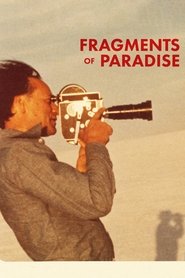 For over 70 years Jonas Mekas internationally...
For over 70 years Jonas Mekas internationally...Fragments of Paradise 2022
For over 70 years, Jonas Mekas, internationally known as the "godfather" of avant-garde cinema, documented his life in what came to be known as his diary films. From his arrival in New York City as a displaced person in 1949 to his death in 2019, he chronicled the trauma and loss of exile while pioneering institutions to support the growth of independent film in the United States. Fragments of Paradise is an intimate look at his life and work constructed from thousands of hours of his own video and film diaries-including never-before-seen tapes and unpublished audio recordings. It is a story about finding beauty amidst profound loss, and a man who tried to make sense of it all... with a camera.
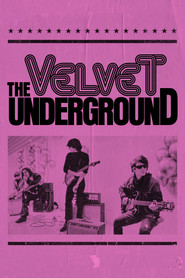 Experience the iconic rock bands legacy...
Experience the iconic rock bands legacy...The Velvet Underground 2021
Experience the iconic rock band's legacy in the first major documentary to tell their story. Directed with the era’s avant-garde spirit by Todd Haynes, this kaleidoscopic oral history combines exclusive interviews with dazzling archival footage.
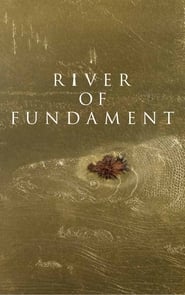 Visionary artist Matthew Barney returns to...
Visionary artist Matthew Barney returns to...River of Fundament 2014
Visionary artist Matthew Barney returns to cinema with this 3-part epic, a radical reinvention of Norman Mailer’s novel Ancient Evenings. In collaboration with composer Jonathan Bepler, Barney combines traditional modes of narrative cinema with filmed elements of performance, sculpture, and opera, reconstructing Mailer’s hypersexual story of Egyptian gods and the seven stages of reincarnation, alongside the rise and fall of the American car industry.
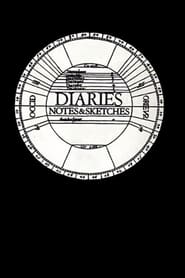 An epic portrait of the New...
An epic portrait of the New...Diaries, Notes, and Sketches 2013
An epic portrait of the New York avant-garde art scene of the 60s.
 Using the words and ideas of...
Using the words and ideas of...What Is Cinema? 2013
Using the words and ideas of great filmmakers, from archival interviews with Alfred Hitchcock and Robert Bresson to new interviews with Mike Leigh, David Lynch, and Jonas Mekas, Oscar-winning filmmaker Chuck Workman shows what these filmmakers and others do that can't be expressed in words - but only in cinema.
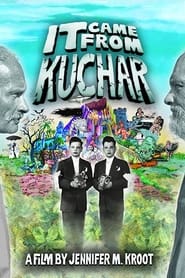 It Came from Kuchar is the...
It Came from Kuchar is the...It Came from Kuchar 2009
It Came from Kuchar is the definitive, feature documentary about the legendary, underground filmmaking twins, the Kuchar brothers. George and Mike Kuchar have inspired two generations of filmmakers, actors, musicians, and artists with their zany, "no budget" films and with their uniquely enchanting spirits.
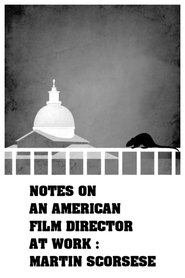 Filmmaker Jonas Mekas follows his friend...
Filmmaker Jonas Mekas follows his friend...Notes on an American Film Director at Work 2008
Filmmaker Jonas Mekas follows his friend, film director Martin Scorsese, and his cast and crew, through various locations during the shooting of his film The Departed, released in 2006.
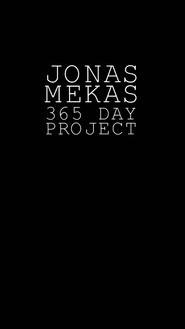 This exhibition focuses on Jonas Mekas 365...
This exhibition focuses on Jonas Mekas 365...365 Day Project 2007
This exhibition focuses on Jonas Mekas’ 365 Day Project, a succession of films and videos in calendar form. Every day as of January 1st, 2007 and for an entire year, as indicated in the title, a large public (the artist's friends, as well as unknowns) were invited to view a diary of short films of various lengths (from one to twenty minutes) on the Internet. A movie was posted each day, adding to the previously posted pieces, resulting altogether in nearly thirty-eight hours of moving images.
 A compilation of over 30 years of...
A compilation of over 30 years of...As I Was Moving Ahead, Occasionally I Saw Brief Glimpses of Beauty 2000
A compilation of over 30 years of private home movie footage shot by Lithuanian-American avant-garde director Jonas Mekas, assembled by Mekas "purely by chance", without concern for chronological order.
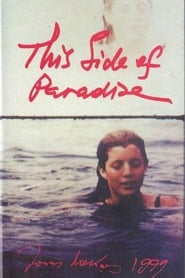 Unpredictably as most of my lifes...
Unpredictably as most of my lifes...This Side of Paradise: Fragments of An Unfinished Biography 1999
Unpredictably, as most of my life’s key events have been, for a period of several years of late sixties and early seventies, I had the fortune to spend some time, mostly during the summers, with Jackie Kennedy’s and her sister Lee Radziwill’s families and children. Cinema was an integral, inseparable, as a matter of fact, a key part of our friendship. The time was still very close to the untimely, tragic death of John F. Kennedy. Jackie wanted to give something to her children to do, to help to ease the transition, life without a father. One of her thoughts was that a movie camera would be fun for children. Peter Beard, who was at that time tutoring John Jr. and Caroline in art history, suggested to Jackie that I was the man to introduce the children to cinema. Jackie said yes. And that’s how it all began
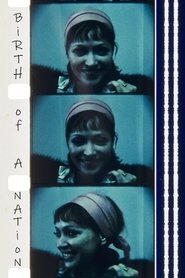 Filmmaker Jonas Mekas films 160 underground film...
Filmmaker Jonas Mekas films 160 underground film...Birth of a Nation 1997
Filmmaker Jonas Mekas films 160 underground film people over four decades.
 Cinmaton is a 156hour long experimental...
Cinmaton is a 156hour long experimental...Cinématon 1978
Cinématon is a 156-hour long experimental film by French director Gérard Courant. It was the longest film ever released until 2011. Composed over 36 years from 1978 until 2006, it consists of a series of over 2,821 silent vignettes (cinématons), each 3 minutes and 25 seconds long, of various celebrities, artists, journalists and friends of the director, each doing whatever they want for the allotted time. Subjects of the film include directors Barbet Schroeder, Nagisa Oshima, Volker Schlöndorff, Ken Loach, Benjamin Cuq, Youssef Chahine, Wim Wenders, Joseph Losey, Jean-Luc Godard, Samuel Fuller and Terry Gilliam, chess grandmaster Joël Lautier, and actors Roberto Benigni, Stéphane Audran, Julie Delpy and Lesley Chatterley. Gilliam is featured eating a 100-franc note, while Fuller smokes a cigar. Courant's favourite subject was a 7-month-old baby. The film was screened in its then-entirety in Avignon in November 2009 and was screened in Redondo Beach, CA on April 9, 2010.
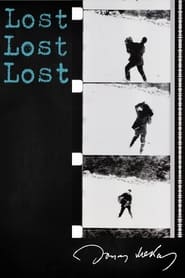 Jonas Mekas adjusts to a life...
Jonas Mekas adjusts to a life...Lost, Lost, Lost 1976
Jonas Mekas adjusts to a life in exile in New York in his autobiographical film, shot between 1949 and 1963.
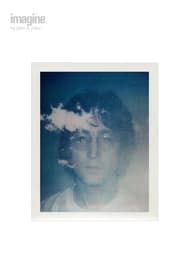 A surreal halffiction half real life...
A surreal halffiction half real life...Imagine 1972
A surreal, half-fiction, half real life footage of a day in the life of John lennon and Yoko Ono, composed to music from John's historic 'Imagine' album and Yoko's 'Fly'.
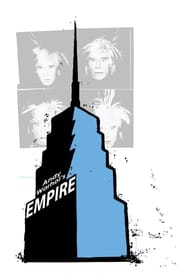 Filmed by Jonas Mekas from the 44...
Filmed by Jonas Mekas from the 44...Empire 1965
Filmed by Jonas Mekas from the 44th floor of the Time-Life Building, “Empire” explores the passage of time without the use of characters or a traditional narrative. The film, that consists of one stationary shot of the Empire State Building, was made from standard 1,200-foot rolls of 16mm film with a more than eight-hour runtime.
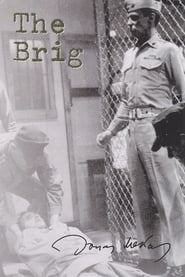 An ultrarealistic depiction of life in...
An ultrarealistic depiction of life in...The Brig 1964
An ultra-realistic depiction of life in a Marine Corps brig (or jail) at a camp in Japan in 1957. Marine prisoners are awakened and put through work details for the course of a single day, submitting in the course of it to extremely harsh and shocking physical and mental degradation and abuse.
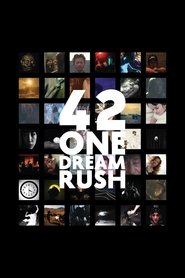 Collection of short films by various...
Collection of short films by various...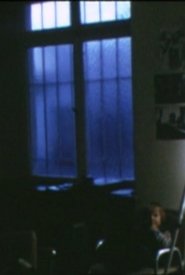 Home movies shot on Super 8mm...
Home movies shot on Super 8mm...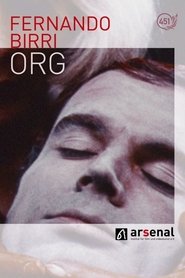 Explores the complex relationship between the...
Explores the complex relationship between the...